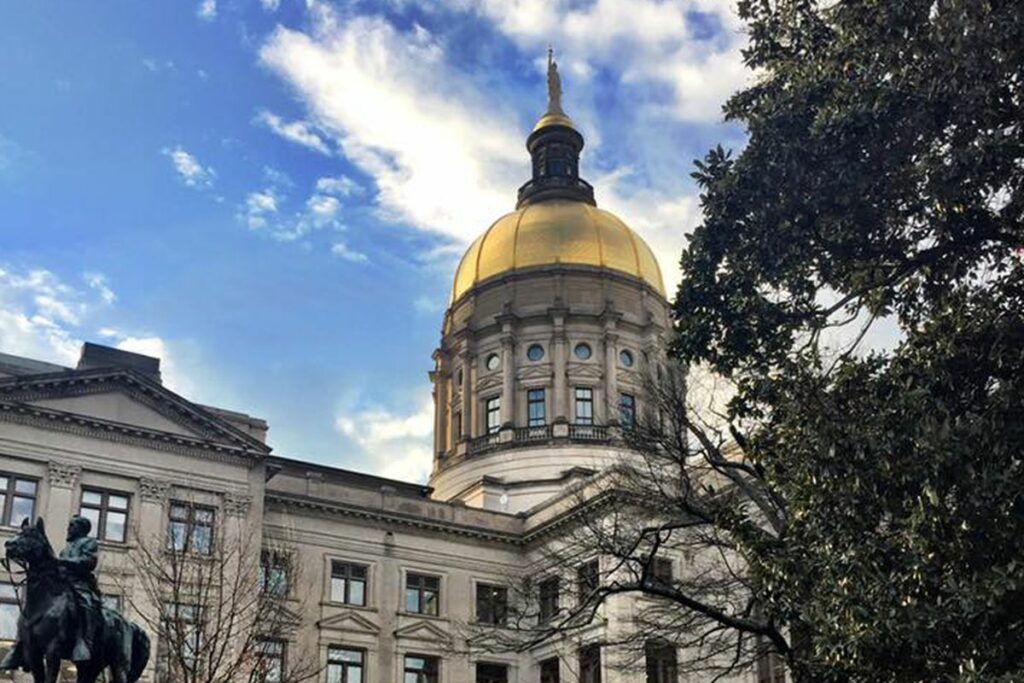
ATLANTA – Gov. Brian Kemp unveiled a $28.1 billion budget proposal Thursday that would set a new record for state spending in fiscal 2021 despite the air of fiscal uncertainty surrounding this year’s General Assembly session.
While the spending plan would surpass the then-record $27.5 billion fiscal 2020 budget lawmakers passed last spring, the increase would be far less than the $1.3 billion spending hike the legislature adopted a year ago.
Responding to several months of declining state tax collections, the governor ordered most state agencies last summer to reduce their spending during the current fiscal year by 4% and by 6% percent in fiscal 2021, which begins July 1.
“This past August, I challenged state agencies to identify opportunities to streamline operations, eliminate duplicative programs, and leverage technology to better serve our state’s citizens,” Kemp wrote in his annual budget message to members of the General Assembly. “This fiscal year (FY) 2021 budget aligns existing resources to accomplish those objectives.”
However, some of Georgia’s biggest spending agencies have been exempted from the cuts, including the state Department of Education and the state’s Medicaid program overseen by the Department of Community Health.
Just keeping up with enrollment growth in Georgia’s public schools is a big budget driver. Kemp is asking for $257.2 million to cover enrollment growth in the schools.
Another $89.6 million is earmarked for increased enrollment in Medicaid, an expense unrelated to the governor’s initiatives to obtain federal waivers to tailor Georgia Medicaid to fit the more conservative approach he wants to take with the program.
The $2,000 teacher pay raise Kemp announced in Thursday’s State of the State address would cost the state $362.2 million next year. Another $40.7 million would be used to give state employees making less than $40,000 a year a $1,000 raise.
One area where the state could save money in fiscal 2021 is the annual bond package, if members of the Georgia House and Senate don’t pile on too many additional building projects when they get their turn with the budget.
Kemp is proposing $890 million in bonds to finance construction projects across Georgia, down from this year’s $1.1 billion bond package.
The largest individual project on the list would provide $70 million to expand the Savannah Convention Center on Hutchinson Island, the first installment of what city officials hope will add up to $210 million over three years.
The project would double the exhibit hall space to 200,000 square feet, add a 60-foot-wide hangar door, a new entrance with an all-glass façade, outdoor space, a 40,000-square-foot ballroom, 15 meeting rooms and 900 parking spaces. The center is frequently booked to capacity, forcing it to turn away larger gatherings that would bring in more revenue.
The proposed bond package also includes $54.5 million to build a new state Department of Public Safety headquarters in Atlanta, $42.8 million for a STEM research building at the University of Georgia, $34.8 million to renovate and expand Building 100 at Gwinnett Technical College, $30.7 million to expand Technology Square on the Midtown Atlanta campus of Georgia Tech and $19.5 million toward the $35 million price tag of the University of North Georgia’s Mike Cottrell College of Business in Dahlonega, due to open in 2022.
Ongoing bridge repair and replacement projects across the state would receive a $50 million influx of bond financing.
The governor earmarked about $2.9 million to beef up the gang task force he created last year by adding seven new positions.
A commission the General Assembly created last year to oversee Georgia’s new medical cannabis program would receive $354,577. Supporters of expanding the availability of cannabis oil in Georgia to treat a number of diseases have been complaining about the program’s slow start due to a lack of funding.
Another $316,461 would go toward increasing election security as the state switches over to new voting machines that feature both electronic touch screens and paper ballot backups.
Many of Kemp’s spending requests would be spread over the fiscal 2020 mid-year budget and the fiscal 2021 spending plan.
The governor is recommending $27.4 billion for the mid-year budget, which would cover state spending through June 30. That represents a slight cut from the current $27.5 billion spending plan.